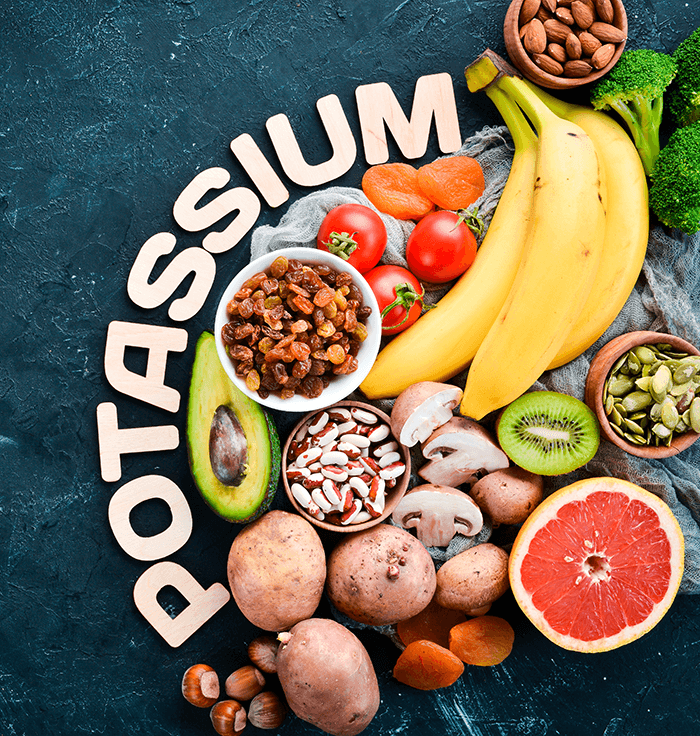- +033 2572 7171
- info@dhanvantary.com

4.5 Rating | 4500 Review

4.5 Rating | 4500 Review
The significance of potassium in our dietary regimen should not be overlooked. This vital mineral is crucial for maintaining a healthy body. Potassium is essential for both cellular and electrical functions, playing a key role in the synthesis of proteins and muscle tissues. Additionally, it helps regulate pH levels within our cells. The blood serum typically contains around 4-5 mg of total potassium, while red blood cells hold approximately 420 mg. It is recognized as a primary blood mineral, classified as an electrolyte that carries an electrical charge.

Leafy green vegetables such as broccoli, spinach, parsley, lettuce, peas, lima beans, tomatoes, and potatoes are excellent sources of potassium. Fruits that are high in potassium include bananas, apples, avocados, raisins, and apricots, with oranges and other citrus fruits also contributing significantly. Additionally, potassium can be found in wheat germ, whole grains, seeds, and nuts. Meat and fish, particularly salmon, flounder, sardines, and cod, are also rich in potassium. Various herbs, including catnip, red clover, sage, hops, horsetail, nettle, skullcap, and plantain, also provide potassium.
A chronic deficiency of potassium can lead to symptoms such as fatigue, muscle weakness, delayed reflexes, insomnia, irregular heartbeat, bone fragility, and decreased gastrointestinal tone. Furthermore, potassium deficiency can result in serious health issues, including congestive heart failure, cardiac arrhythmia, persistent fatigue, depression, and behavioral changes. Conditions such as vomiting, diarrhea, and other gastrointestinal disorders can contribute to reduced potassium levels in the body.
Hyperkalemia is a condition characterized by elevated potassium levels in the bloodstream, which can result in severe complications such as heart attacks and paralysis. Excessive potassium intake may also lead to kidney failure.
